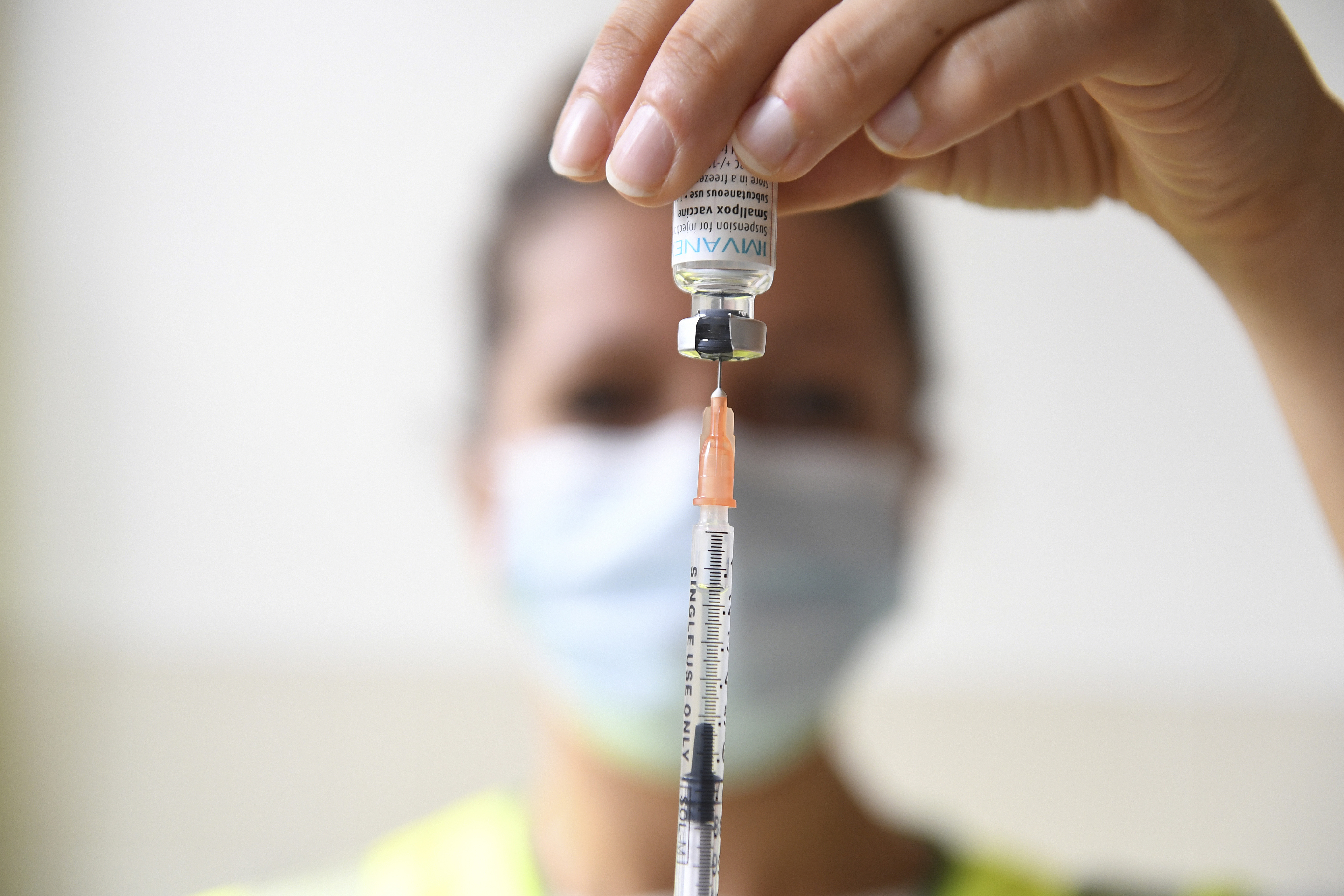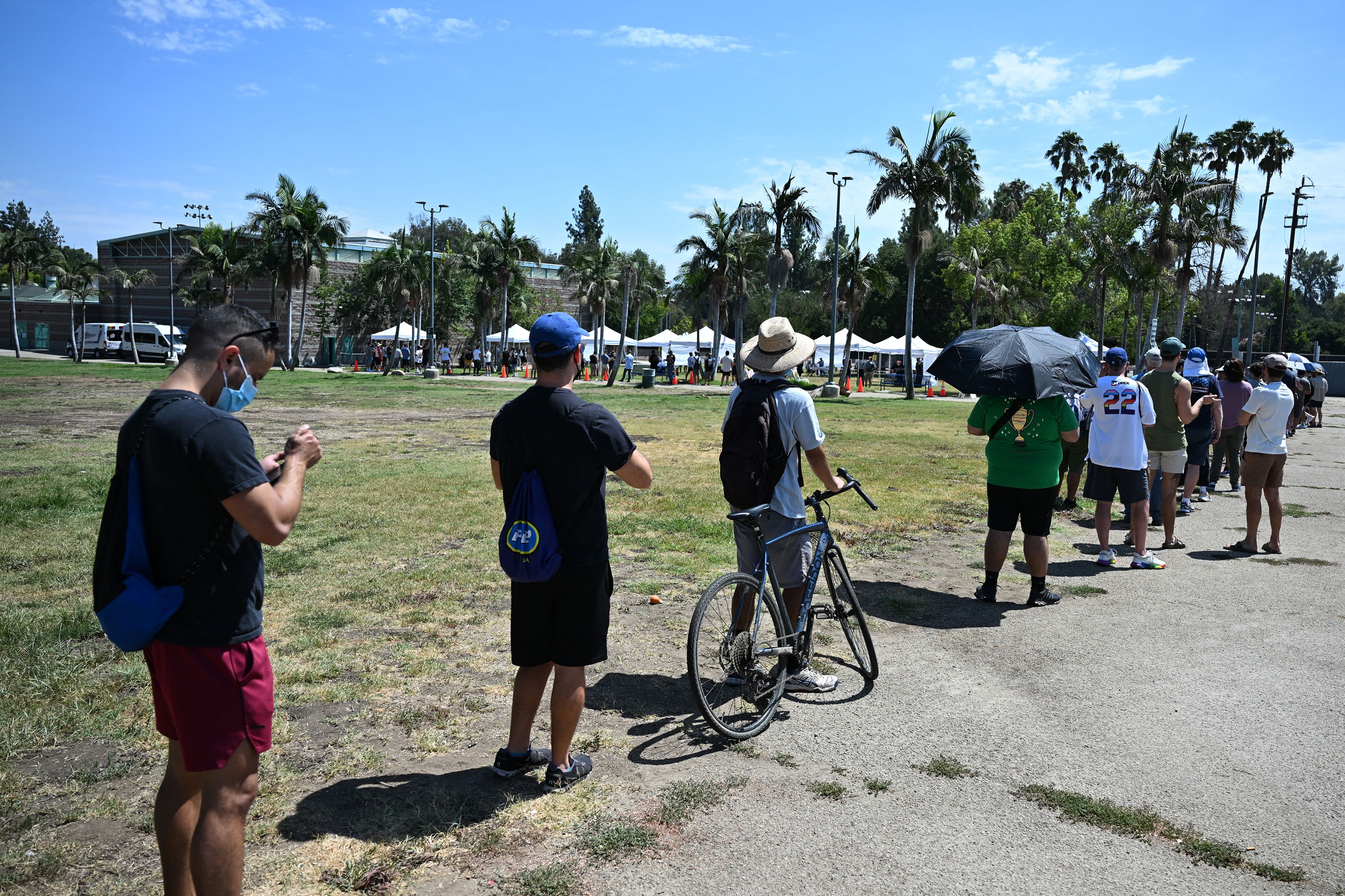What to Know
- An outbreak of a disease called monkeypox has now spread to more than 70 countries, including the United States, where hundreds of cases have been confirmed since May.
- Cases have been confirmed in Philadelphia, New Jersey and Delaware, with the first in Philadelphia in early June.
- Monkeypox is spread by person-to-person contact, according to the Centers for Disease Control. Within one to three days of developing a fever, an infected person then "develops a rash, often beginning on the face then spreading to other parts of the body." The infection usually lasts two to four weeks.
Philadelphia now has 82 cases of monkeypox, a virus that the World Health Organization last weekend declared a global emergency because it has spread rapidly throughout many countries.
Although monkeypox has been established in parts of central and west Africa for decades, it was not known to spark large outbreaks beyond the continent or to spread widely among people until May, when authorities detected dozens of epidemics in Europe, North America and elsewhere.
Since early June, cases have been confirmed in Philadelphia, New Jersey and Delaware.
Get Philly local news, weather forecasts, sports and entertainment stories to your inbox. Sign up for NBC Philadelphia newsletters.
New Jersey reports 155 cases, as of Aug. 1, on its Health Department website. Only 10 are in southern counties, however.
The first cases in the United States were reported in late May. Health officials in Philadelphia have said a vaccine is available to some eligible patients. Here are locations that the vaccine will be available to people who make an appointment:
- Mazzoni Center
- PhiladelphiaFIGHT
- Presbyterian Hospital
- Drexel Partnership
- PennMedicine
But there have been reports of vaccine shortages.
WHO’s top monkeypox expert, Dr. Rosamund Lewis, said two weeks that 99% of all the monkeypox cases beyond Africa were in men and that of those, 98% involved men who have sex with men. Experts suspect the monkeypox outbreaks in Europe and North America were spread via sex at two raves in Belgium and Spain.
Philadelphia health officials echoed Lewis.
"The 2022 monkeypox outbreak has affected the community of gay, bisexual, transgender, non-binary, and other men who have sex with men," the city health department says on its webpage dedicated to the outbreak.
Monkeypox Outbreak
WHO Director-General Tedros Adhanom Ghebreyesus made the decision just over a week ago to issue the global emergency declaration despite a lack of consensus among members of WHO's emergency committee. It was the first time the chief of the U.N. health agency has taken such an action.
"We have an outbreak that has spread around the world rapidly through new modes of transmission about which we understand too little and which meets the criteria in the international health regulations,” Tedros said at the time.
Monkeypox is spread by person-to-person contact, according to the Centers for Disease Control.
Initial symptoms include:
Within one to three days of developing a fever, an infected person then "develops a rash, often beginning on the face then spreading to other parts of the body." The infection usually lasts two to four weeks.
"In humans, the symptoms of monkeypox are similar to but milder than the symptoms of smallpox. Monkeypox begins with fever, headache, muscle aches, and exhaustion," the CDC says on its website. "The main difference between symptoms of smallpox and monkeypox is that monkeypox causes lymph nodes to swell (lymphadenopathy) while smallpox does not."
The Associated Press contributed reporting to this story.



